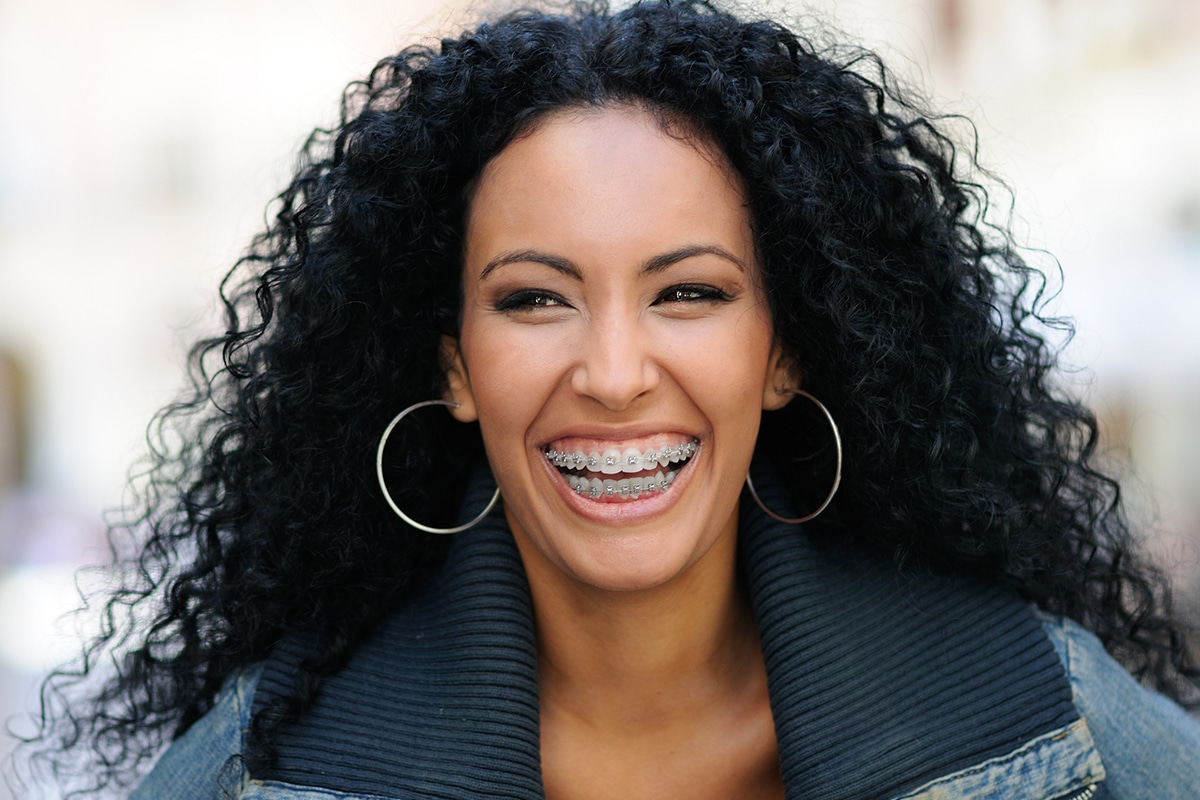
Braces are still a very popular way to straighten misaligned teeth in children and adolescents (and sometimes for adults too!). Both metal and clear braces are now available to suit every style and budget. However, there’s definitely a learning curve when it comes to the dos and don’ts of having braces. From how to take care of them to what foods you can eat, patients getting braces usually have a lot of questions. Some of the most common questions we hear are about which foods they can and cannot eat.
Best Diet for Braces
When you first get braces, you’ll have to eat a soft diet while you get accustomed to them. This may include foods like oatmeal, yogurt, scrambled eggs, soups, pastas, and mashed potatoes. As time goes on, you’ll be able to add in firmer foods so your diet is not quite so restricted. However, it is always best practice to go for the softest foods possible when you have braces, even if you’ve had them for years.
Why Do Certain Foods Need to Be Avoided With Braces?
Hard, sticky, or gummy foods can damage your braces and lead to more extensive dental work to repair the damage. Hard food can cause physical damage to the brackets, bands, and wires of the braces, while sticky and gummy foods tend to get stuck in the nooks and crannies of the parts, building up over time and causing difficulty with movement along with possible tooth decay. Avoiding these types of foods, along with proper dental hygiene, is the only way to keep your braces in good condition.
Foods to Stay Away From if You Have Braces
These are the most common problem foods for people with dental braces. Avoid the foods on this list, and any other foods like them, completely for the entire time you have braces:
- Crunchy Veggies (don’t bite into a large carrot, cut it into thin strips)
- Hard Candies
- Chewing Gum (sugar-free gum is okay)
- Sticky Candies (Now or Laters, Laughy Taffy, etc)
- Corn on the Cob (just cut it off)
- Beef Jerky
- Hard Pretzels (the large ones)
- Bagels and pizza crust, don’t tear into it with your front teeth, break off smaller pieces and chew them with your back teeth
- Ice
What to Eat Instead
Now that you know what types of food you need to stay away from when you have braces, let’s talk about the foods that are safe to eat:
- Pastas
- Grains
- Mashed Potatoes
- Meats with No Bones
- Cooked Veggies
- Soft Fruits, harder fruits can be cut up.
- Soups
- Dairy Products
- Soft Breads
- Casseroles
- Cheeses
- Seafood
Frequently Asked Questions About Dental Braces
What is the best age for braces?
The ideal time to get braces is between 8-14 years old, when most of the adult teeth have erupted but the teeth are still moving into their permanent places. However, older adolescents and adults are also potential candidates for braces. Each dental situation is unique and must be evaluated by a dental professional before a recommendation for braces can be made.
How long do braces take?
Patients will have braces for 1-3 years on average, with the exact amount of time depending on the patient’s specific dental issues, severity of those issues, and age. Some patients complete treatment in just six months, while others may take 3 years.
Need Dental Braces in Andover, MA?
If you’ve noticed misalignment, crowding, or gaps in your child or teen’s adult teeth, it may be time to speak with a dental professional about dental braces. Dr. Broccoli is a Diplomate of the American Board of Orthodontics and ensures that all of his patients have the most comfortable experience possible with excellent results.
For more information or to book an appointment, call 978-475-0450 or request an appointment online.
